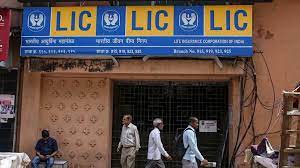LIC Jeevan Azad Policy: Life Insurance Corporation of India (LIC) offers many policies to investors. These policies provide an opportunity to the customers to make huge funds with low investment. LIC has recently launched Jeevan Azad Plan (Plan no. – 188). This is a limited period premium payment plan. In this plan, the family members get financial help in case of sudden death of the policyholder.
LIC Jeevan Azad Policy : Life Insurance Corporation of India (LIC) offers many policies to investors. These policies provide an opportunity to the customers to make huge funds with low investment. LIC has recently launched Jeevan Azad Plan (Plan no. – 188). This is a limited period premium payment plan. In this plan, the family members get financial help in case of sudden death of the policyholder. If the policyholder survives till maturity, he gets back the policy money along with the Guaranteed Sum Assured. Let us know the benefits of Jeevan Azad Policy (LIC Jeevan Azaad Policy) ..
Minimum and maximum insurance is available in LIC Jeevan Azad plan
LIC Jeevan Azad plan is a non-linked non-participating premium endowment plan. As per the policy documents, the minimum Basic Sum Assured under LIC Jeevan Azad is Rs 2 lakh while the maximum Basic Sum Assured has been fixed at Rs 5 lakh. It is a non-linked non-participating premium endowment plan. As per the policy documents, the minimum Basic Sum Assured under LIC Jeevan Azad is Rs 2 lakh while the maximum Basic Sum Assured has been fixed at Rs 5 lakh.
age limit
In Jeevan Azad plan, a person of 90 days i.e. from a child of 3 months to a person of 50 years can take it.
Minimum and Maximum Policy Plan of LIC Jeevan Azad
A policyholder can buy LIC Jeevan Azad plan for a minimum of 15 and a maximum of 20 years.
Premium – Jeevan Azad Policy
Policyholders can pay annual, half-yearly, quarterly and monthly premiums under LIC’s plan. The premium has to be paid for 8 years in the policy. If the person taking the policy holder survives till maturity, then he gets the guaranteed return. Otherwise, the nominee of the policy gets the money. The policy holder gets a minimum of Rs 2 lakh and a maximum of Rs 5 lakh.

